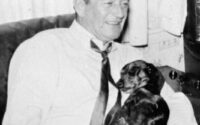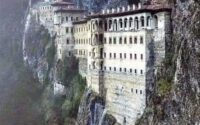The Last of the Soviet Union: Cosmonaut “Abandoned” in Space Amidst the Storm of History! .m
Among the most shocking historical events of the 20th century, there is a story of loneliness, courage, and incredible irony that took place hundreds of kilometers away from Earth. It is the story of Sergei Krikalev, a Soviet cosmonaut who went down in history not only for his record-breaking time in orbit, but also for his haunting nickname: “The Last Soviet Citizen.”
The events of 1991, when the Soviet Union collapsed, left Krikalev, then on a mission to the Mir space station, with a unique dilemma: he was a man without a homeland to return to.
📅 A Flight That Started Ordinarily, Ended in Political Tragedy
Krikalev was launched into space in May 1991, just months before the political earthquake that rocked Eastern Europe. His mission was supposed to last only a few months. But as he floated through space, witnessing 16 sunrises a day, the world below shattered.
In December 1991, the Soviet Union officially dissolved. The events on the ground immediately created life-and-death problems for Krikalev:
The financial problem: Russia had inherited the space program, but its budget was so tight that it could not afford to launch a replacement and bring Krikalev back on schedule.

The geographical problem: Both the Baikonur Cosmodrome and the designated landing site were located in the newly independent nation of Kazakhstan. Uncertainty about control, agreements, and costs turned the return into a political gamble.
With this chaos, Krikalev received a cold but straightforward message: he had to stay.
🤯 311 Days “Forgotten” in Space: Loneliness Turns into Life
Krikalev’s mission was extended twice as long as planned. In total, he spent 311 days on the Mir station.
Imagine the psychological stress:
The separation: He was not only away from his family but also from a country. When he flew up, it was the Soviet Union; when he returned, he would land in a new Russia, with new companions on the station who no longer talked about five-year plans but about making money.
The deterioration: The Mir station was aging. Krikalev and his teammates faced many technical problems, including fires, power outages and leaks. He had to become a rescue engineer, maintaining the station while the agencies on the ground were fighting for power.
During this time, Krikalev was constantly asked if he was willing to stay longer. And each time, he agreed. He understood that if he left, no one else would be able to maintain the station, and the effort and billions of rubles invested in the entire space program would be lost.
🦸♂️ The Return: “Citizen” of a Dead Empire
Finally, after Germany (which contributed financially) and Russia reached an agreement, a rescue ship was launched.
When Krikalev returned to Earth on March 25, 1992, the sight was shocking:
He looked gaunt, pale, and needed to be helped. Ten months of gravity had taken its toll on his body.
He had gone up as a Colonel in the Soviet Air Force; he had returned as a stranger with a passport from a newly born nation.
The greatest irony: His uniform still bears the insignia and flag of the Union of Soviet Socialist Republics—a country that no longer exists.
Sergei Krikalev was not the only one on Mir at the time, but he was the one who witnessed the entire collapse and the only one who stayed twice as long because of it.
His silent sacrifice is not only a scientific feat but also a powerful metaphor for the fall of an empire. He is a symbol of loyalty and duty caught in the midst of rapid political change.
🗣️ What do you think?
Sergei Krikalev is a trapped hero. His story raises a haunting question: If your country disappeared while you were on a mission in the most remote place, what would you fight to protect?
Share your thoughts: Does Krikalev deserve the honor he deserves for his incredible sacrifice? And what does this story say about a soldier’s loyalty to a nation that no longer exists?


